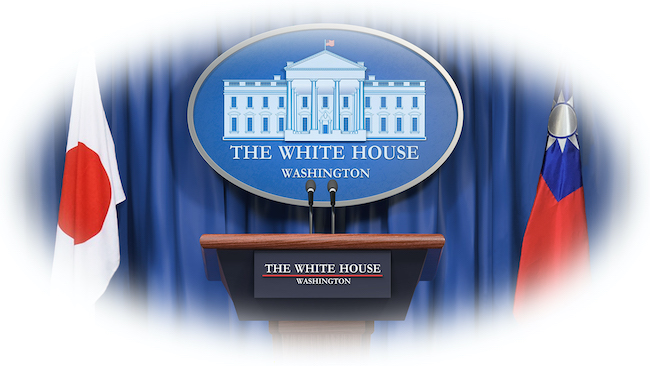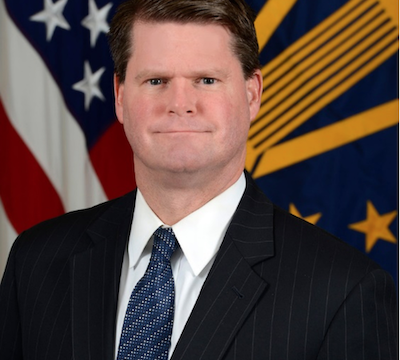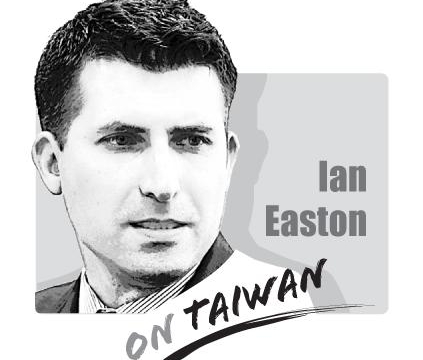
Taiwan Is Building Eight New Submarines—They Alone Could Destroy A Chinese Invasion Fleet
December 2, 2020
A Message from our Chairman: In Support of Lifting Self-Imposed Restrictions on the U.S.-Taiwan Relationship
January 10, 2021Thursday, December 10, 2020
7:00 pm – 8:00 pm (U.S. EST)
During the livestream, please submit questions via the Live Chat function on the YouTube stream or email project2049@project2049.net.
EVENT DESCRIPTION
The next President of the United States will assume office in an unprecedented historical moment with tremendous implications for international stability. The determination of Chairman Xi Jinping and the Chinese Communist Party (CCP) to make conquering Taiwan the primary feature of party-state policy is an event of first magnitude in world affairs. Taiwan—positioned as the focal point of the Indo-Pacific security architecture—represents the single most important challenge being inherited by the President-elect.
In the Project 2049 Institute’s most recent publication, “Memo to the Next President: The Inheritance in the Indo-Pacific and the Challenges and Opportunities for Your Presidency,†Chairman Randall G. Schriver explains how international peace and prosperity rely on the success of Washington’s Indo-Pacific security policy. Chairman Schriver makes clear that stability in the Indo-Pacific is supported by the fundamental principles that guide American policy in its partnerships around the world. Of these partnerships, one of the most critical to regional stability is the U.S.-Taiwan relationship. Today, the Chinese Communist Party (CCP) and its People’s Liberation Army (PLA) threaten this relationship and the principles that give it strength. In light of this challenge, Chairman Schriver delivers a memo with nine recommendations to safeguard democracy in the region and prepare the President-elect for the storm brewing across the Pacific.
In conjunction with the release of this timely and illuminating memo, Chairman Schriver will host a Project 2049 Institute Webinar titled “The Inheritance in the Indo-Pacific: Challenges and Opportunities for the Next President.†During this livestream event, a distinguished group of international experts from the United States, Japan, and Taiwan will explore shared interests and challenges facing their respective governments as the U.S. President-elect prepares to take office. In addition to outlining potential areas of cooperation, panelists share their perspective on China’s coercive behavior and the importance of Taiwan to the regional security outlook.
SCHEDULE
7:00 pm – 7:10 pm
Introduction
John Gastright, Jr.
The Project 2049 Institute
Overview of Memo to the Next President
The Honorable Randall G. Schriver
The Project 2049 Institute
7:10 pm – 7:20 pm
Perspective from Japan
Nobukatsu Kanehara
The Asia Group
7:20 pm – 7:30 pm
Perspective from the United States
Carolyn Bartholomew
U.S.-China Economic and Security Review Commission
7:30 pm – 7:40 pm
Perspective from Taiwan
Vincent Chao
Taipei Economic and Cultural Representative Office
7:40 pm – 8:00 pm
Q&A
This event will stream live on our website and YouTube channel.
SPEAKERS
Randall G. Schriver is Chairman of the Board at The Project 2049 Institute. Most recently, Chairman Schriver served as the Assistant Secretary of Defense for Indo-Pacific Security Affairs from 8 January 2018 to 31 December 2019. Prior to his confirmation as Assistant Secretary, Chairman Schriver was a founding partner of Armitage International LLC, a consulting firm that specializes in international business development and strategies. He was also a founder of the Project 2049 Institute, and served as President and CEO. Previously, Chairman Schriver served as Deputy Assistant Secretary of State for East Asian and Pacific Affairs. From 2001 to 2003, he served as Chief of Staff and Senior Policy Advisor to the Deputy Secretary of State. From 1994 to 1998, he worked in the Office of the Secretary of Defense, including as the senior official responsible for the day-to-day management of U.S. bilateral relations with the People’s Liberation Army and the bilateral security and military relationships with Taiwan. Prior to his civilian service, he served as an active duty Navy Intelligence Officer from 1989 to 1991, including a deployment in support of Operation Desert Shield/Desert Storm. After active duty, he served in the Navy Reserves for nine years, including as Special Assistant to the Chairman of the Joint Chiefs of Staff and an attaché at U.S. Embassy Beijing and U.S. Embassy Ulaanbaatar. Chairman Schriver has won numerous military and civilian awards from the U.S. government and was presented while at the State Department with the Order of the Propitious Clouds by the President of Taiwan for service promoting U.S.-Taiwan relations. Chairman Schriver received a Bachelor of Arts degree in history from Williams College and a Master of Arts degree from Harvard University.
Nobukatsu Kanehara is a Senior Advisor to The Asia Group, based in Japan. Mr. Kanehara served as assistant chief cabinet secretary to Prime Minister Shinzo Abe from 2012 to 2019. In 2013, he also became the inaugural deputy secretary-general of the National Security Secretariat. He also served as deputy director of the Cabinet Intelligence and Research Office. Mr. Kanehara served in the Ministry of Foreign Affairs as director-general of the Bureau of International Law, deputy director-general of the Foreign Policy Bureau, ambassador in charge of the United Nations and Human Rights, deputy director-general of European affairs in charge of Russia and Eastern Europe. He served abroad as deputy chief of mission in Seoul; minister at the Embassy of Japan in Washington, D.C.; and minister of the Permanent Mission of Japan to the United Nations. Mr. Kanehara entered the Ministry of Foreign Affairs following his graduation from the University of Tokyo’s Faculty of Law in 1981. Early during his career at the Ministry, he studied at the École Nationale d’Administration in France. He currently teaches at Doshisha University’s Faculty of Law as professor and has previously taught at the Faculty of Law and the Graduate School of Law at Waseda University. He is proficient in French, as well as Japanese and English. He was decorated by the President of Republic of France with Ordre de la Legion d’Honneur.
Carolyn Bartholomew was reappointed Vice Chairman to the U.S.-China Economic and Security Review Commission by House Democratic Leader Nancy Pelosi for a two-year term expiring on 31 December 2021. She previously served as the Commission’s Chairman for the 2007, 2009, 2017, and 2019 Report cycles and served as Vice Chairman for the 2006, 2008, 2010, 2016, and 2018 report cycles. Vice Chairman Bartholomew has worked at senior levels in the U.S. Congress, serving as counsel, legislative director, and chief of staff to now House Democratic Leader Nancy Pelosi. She was a professional staff member on the House Permanent Select Committee on Intelligence and also served as a legislative assistant to then U.S. Representative Bill Richardson. In these positions, Vice Chairman Bartholomew was integrally involved in developing U.S. policies on international affairs and security matters. She has particular expertise in U.S.-China relations, including issues related to trade, human rights, and the proliferation of weapons of mass destruction. Vice Chairman Bartholomew led efforts in the establishment and funding of global AIDS programs and the promotion of human rights and democratization in countries around the world. She was a member of the first Presidential Delegation to Africa to Investigate the Impact of HIV/AIDS on Children and a member of the Council on Foreign Relations’ Congressional Staff Roundtable on Asian Political and Security Issues. Vice Chairman Bartholomew received a Bachelor of Arts degree from the University of Minnesota, a Master of Arts in Anthropology from Duke University, and a Juris Doctorate from Georgetown University Law Center. She is a member of the State Bar of California.
Vincent Chao is the director of the political division at the Taipei Economic and Cultural Representative Office in the United States. Prior to this role, he served as the chief of staff to Taiwan’s foreign minister and senior-level positions at the Office of the President and National Security Council. Before joining the government, he was the deputy director of the International Affairs Department in the Democratic Progressive Party and deeply involved in President Tsai’s 2016 presidential campaign. He has also served as a researcher in the Thinking Taiwan Foundation and as a reporter at the Taipei Times. He holds a B.A. from York University in Canada and an LLM from the University of London.




